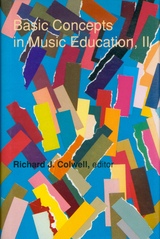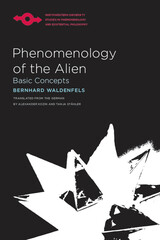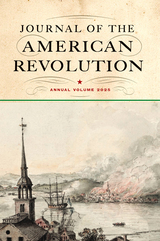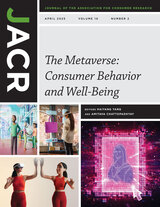
A continuation on the first edition, Basic Concepts in Music Education, II features revisions and updates by the living authors as well as contributions by new authors who delineate concepts of music education that are particularly important to the nineties and beyond. These topics include growth processes, learning theory, functional music, messages for teachers, the range of musical experience, technology, and evaluation.
Chapters from the most noted authorities in music education promise to provide definitive guidance in Basic Concepts, II that Basic Concepts, I has provided for the past quarter century. Among the contributors are Charles Fowler, Harry S. Broudy, Foster McMury, Wayne Bowman, Marilyn Zimmerman, Bennett Reimer, Clifton Burmeister, Richard Colwell, Robert Ehle, and Allen P. Britton. Like its predecessor, Basic Concepts, II offers rich and stimulating discussions on the most pertinent issues facing music education today - discussions that are vital to professionals and enlightening to the general reader.

Few thinkers have contributed more to the understanding of modern civilization than Norbert Elias. Given the significance and relevance of his ideas in explaining social reality, this book seeks to make his complex concepts more accessible. A biographical account of his life (1897-1990) facilitates the comprehension of Elias’s concepts. Elias’s most famous work, “The Civilizing Process”, is the focus of this discussion of his theoretical frameworks, with class structure, the patterns of behavior, and the role of the state as key factors. The book also dedicates special treatment to figurational sociology, an important research field linked especially to Elias.
Elias was an innovator. He criticized accepted concepts and introduced numerous new constructs (habitus is perhaps the best known) discussed in this book. Respective chapters review Elias’s theory of knowledge, the concept of de-civilization—with an emphasis on violence, his analysis of nations and nationalism, and emotions—and his focus on shame.
Elias borrowed ideas from iconic figures in philosophy and the social sciences such as Edmund Husserl, Karl Mannheim, Max Weber, Sigmund Freud, and Talcott Parsons. This book describes the characteristic way Elias interprets them. The book concludes with an overview of the most significant critiques of Norbert Elias's work.

With impressive erudition Waldenfels weaves in xenological themes from classical philosophy, contemporary phenomenology, literature, linguistics, sociology, and anthropology to address the boundaries of experience that unite and separate human beings, their collectives, their perceptions, and aspirations. While the debate has long raged in German-speaking circles, Waldenfels’s work is largely unavailable to the English-speaking audience, with the only other translation being The Order in the Twilight (1996). Phenomenology of the Alien is a superb introduction to both xenological phenomenology, and the the question of the alien as it has been unfolding in contemporary thought.
READERS
Browse our collection.
PUBLISHERS
See BiblioVault's publisher services.
STUDENT SERVICES
Files for college accessibility offices.
UChicago Accessibility Resources
home | accessibility | search | about | contact us
BiblioVault ® 2001 - 2025
The University of Chicago Press









